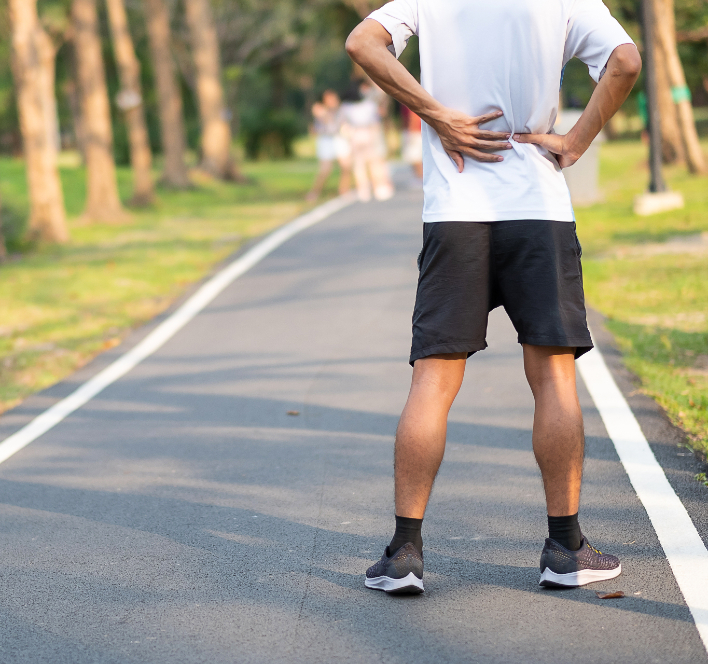Spinal cancer is a type of cancer that causes an abnormal growth of tissues and cells within or around your spinal column. The spine contains many bundles of nerves, cells, and tissues that make communication…
Running is one of the most beneficial exercises for your body as it covers cardio, strength, and core all in one workout! However, running can cause a lot of pain over time, especially in your back. At Orthopedic Laser & Spine Surgery, we want to make sure you are able to do the things you love and avoid back pain. Below you will find the answer to the question of why your back hurts from running. We will also offer best practices to prevent pain during and after your workout.
Why Does My Back Hurt from Running?
The back is a complex muscle group supported by your vertebrae and discs. While you’re running, these muscles are working hard to keep you going. Most commonly, it is your lower back that gets the sorest from running. There are a few things that could be in pain:
- Sacroiliac joint: When it comes to lower back pain from running, this will most likely be the source of what you are feeling. This joint is in the lower part of the back and makes those dimples right above your buttocks. It is located directly above your legs and therefore has a direct connection in the motion of your feet hitting the pavement or treadmill.
- Facet joint: These are the joints that connect the bones of the spine. The nerves of these joints connect to the arms, legs, and spinal cord. This kind of joint can cause irritation during a run due to the connection it has to the rest of the body.
- Weak back: A lifetime of sports or other previous injuries can be a guarantee of lower back pain as you run. It is a commonly overworked muscle group.
Now that you know the basics of what could be hurting in your lower back as you run, let’s talk about ways to prevent pain during your workout.
Best Practices to Help Your Back When Running
As we all know, it is important to take care of yourself, especially when doing vigorous activities. You need to listen to your body and practice the proper precaution to avoid injury that could limit your runs down the line. Below are a few recommendations for keeping your back pain-free while you run.
- Good running shoes: A good pair of shoes is absolutely essential for running. We recommend getting properly fitted at your favorite local athletic shoe store and trying on a few pairs before deciding. It is also important to get new shoes about every 450 to 550 miles. When the shoe is too worn down, it will not be helpful for your back.
- Proper support: A proper-fitting sports bra or compression tank will be key to your running attire. It will provide the support necessary to keep you in a proper running posture. We recommended being fitted at a local store for sports bras as well, and most athletic shoe stores have them!
- Take breaks and rest days: Running can be addictive due to the endorphins it releases. However, it is imperative for your back health that you take breaks while running and take rest days during your workout week. Listen to your body! It is recommended to only run around three days a week.
Ways to Prevent Back Pain Post-Run
When you come in from a run, take a few extra steps to avoid injury and therefore avoid lower back pain.
- Stretch: Give your muscles a well-deserved stretch after you run to ensure you are not sore and avoid injury before your next run. Be sure to take extra time to stretch your lower back.
- Heating pad: Investing in a quality heating pad is a great idea if you experience a lot of lower back pain after running. You can use it if the pain persists a few hours after you run. The heat works to relax the muscles and therefore alleviate pain.
- Strength training: On your rest days from running, it is a good idea to do some weight lifting/muscle toning. By strengthening the muscles that support you while running, you will only improve your performance and avoid a sore back.
When in Doubt, Talk to the Experts at OLSS
Whether you are nervous to keep running because of your lower back pain or just have further questions about prevention, we are here to help. Give us a call at (855) 853-6542 or reach out online to find out more information about how our skilled and highly trained specialists can help you avoid injury and have a strong and healthy running career!

